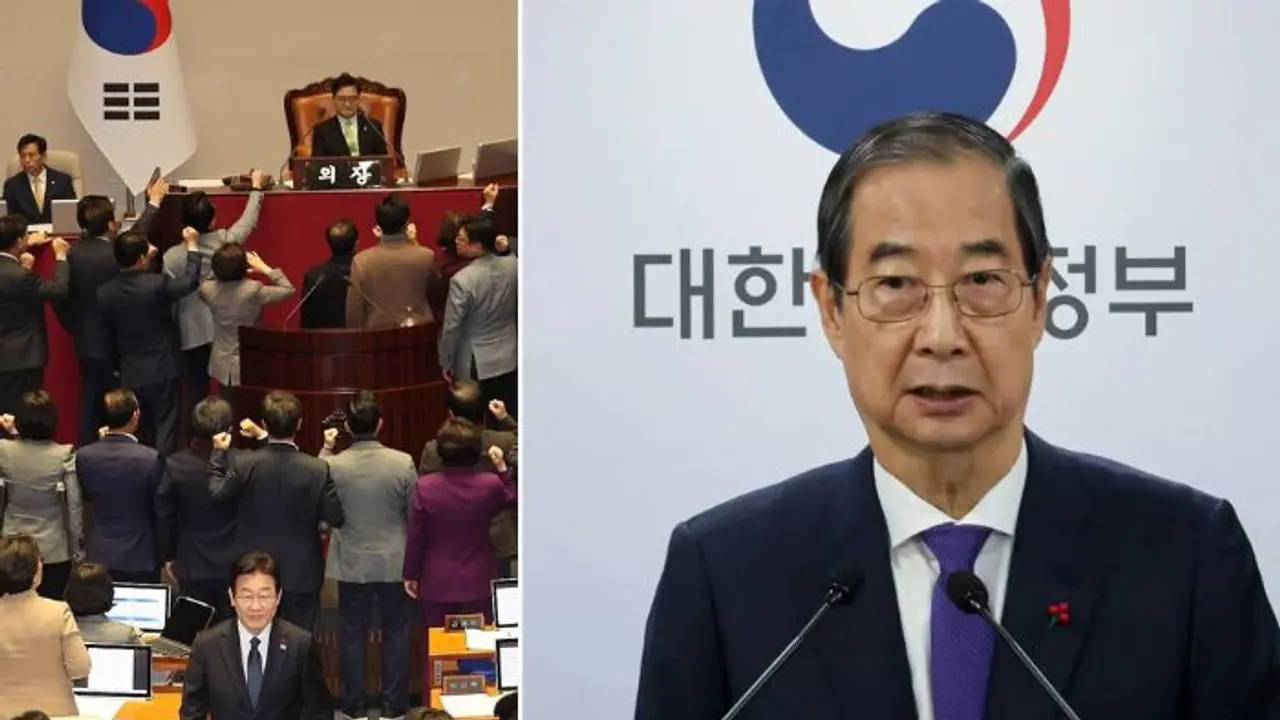South Korea's National Assembly impeached acting President Han Duck-soo, deepening the political crisis after President Yoon Suk Yeol's earlier impeachment. Opposition accused Han of obstructing justice, while ruling party lawmakers boycotted the vote. The Constitutional Court will decide on Han's fate within 180 days.
South Korea's political crisis deepened on Friday as the National Assembly voted to impeach acting President Han Duck-soo. The move comes just two weeks after President Yoon Suk Yeol was impeached following his failed attempt to impose martial law on December 3.

The impeachment motion against Han secured unanimous support from all 192 lawmakers present in the National Assembly, surpassing the required threshold of 151 votes. Members of the ruling People Power Party (PPP) boycotted the proceedings, alleging procedural violations. Announcing the outcome, National Assembly Speaker Woo Won-shik declared, “The impeachment motion against Prime Minister Han Duck-soo has been approved.”
Alibaba Shares Rise On JV with South Korea’s E-Mart: Retail’s Neutral
Han assumed the acting presidency after President Yoon’s suspension. Yoon was impeached following his controversial decision to declare martial law earlier this month, which sparked outrage and allegations of insurrection.
Opposition lawmakers argued that Han failed to fulfil his duties as acting president, particularly by refusing to finalize Yoon’s impeachment process and blocking the appointment of three judges chosen by parliament to oversee the case.
The ruling People Power Party (PPP) strongly opposed the vote, contending that the impeachment quorum for Han was unjustly set too low. While impeaching President Yoon required 200 votes, removing Han only needed a simple majority of 151. In protest, PPP lawmakers chanted slogans like “Invalid!” and “Abuse of power!” in the parliamentary chamber, accusing the Speaker of manipulating procedures to benefit the opposition.
Speaker Woo defended the decision, stating, “This impeachment motion targets the Prime Minister, not the President, and is governed by different constitutional provisions.”
What happens next?
With Han’s impeachment, Finance Minister Choi Sang-mok is next in line to assume the role of acting president. Han will be suspended from his duties immediately after formal notification by parliament.
The Constitutional Court will now review the impeachment motion, which must be upheld by at least six of its nine judges. However, with only six judges currently on the bench, a single rejection could overturn the decision. The court has 180 days to rule on the matter.
Han, addressing the nation, said, “I respect the decision of the National Assembly and will await the Constitutional Court’s ruling.”
FuelCell Stock Rises After Revenue More Than Doubles In Q4: But Retail Sentiment Dips As Losses Widen
The impeachment motion accused Han of “intentionally avoiding” a special investigation into the alleged insurrection and of rejecting the appointment of judges to oversee Yoon’s case. Opposition leaders criticized Han for failing to guide the country out of its ongoing political turmoil.
This marks the first time in South Korea’s constitutional history that an acting president has been impeached. The political upheaval has tarnished the country’s global image and created uncertainty about its governance.
